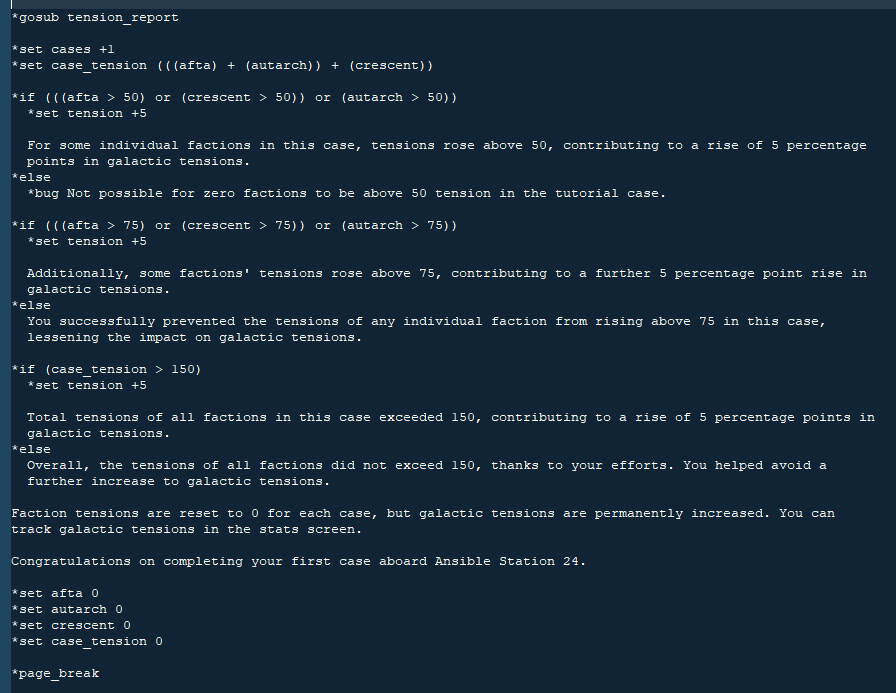I’m starting to lean toward “yes” but I’m curious about what others, both authors and players, think about it.
As a player, one of my biggest frustrations when playing CoGs/HGs is when I start to build my character in a game and I have: 1) no idea of whether certain skills will be more useful than others and 2) no idea about how my actions will affect my success/failure with my goals or how they will impact end states. Admittedly, I think this happens more with HG since their structures vary so much more than do CoGs.
So with Talon City, I lay out all of the mechanics upfront. You build your character in Act 1 (no testing choices). You then move to testing choices, and primary attributes are rotated as options so no attribute is “better” than any other. Die rolls come into play, but you can also bypass the die rolls by using resources or choosing a lower difficulty. Also, before you roll any die, you are given the percentage chance of success, so you know your odds. It’s all explained up front. You’re playing a game where you understand the rules.
With Monologue, I’m doing something similar (when I finalize the structure). All attributes and skills will be tested equally, rotated in different combinations. Powers can be used frequently, but they drain your battery so you must choose when it’s important for your character to pass a particular challenge, etc.
Conversely, I didn’t do any of this for the CCH games. As a result, I feel like some people were left confused about what they could try to accomplish, how they would go about doing so, etc.
I’m really starting to dislike writing games where I, the author, just arbitrarily pick skill checks that are necessary to pass/fail. I mean, that’s the standard approach for a lot of these games, but I’m not sure I want to write games like that anymore. Let’s say, for example, that you need Charm of > 65 to convince a guard to leave her post. How is a player supposed to know this? They might say, “well I have charm of 60. That seems good enough.” But of course, it ends up not being good enough. It seems very frustrating to me and again, very arbitrary, where you’re sort of flailing around as a player trying to figure out “what is good enough.”
Would it perhaps be more compelling to involve resources or create a mechanic where the player has more control over outcomes, but must decide which outcomes are more important to their character to obtain?
And speaking more broadly, we all know how diverse HGs are. Some are really stat-based, others lean more into the narrative, and I’m thinking this diversity is a good reason for authors to explain upfront in an author note, or perhaps in the stats screen, of the basic “terrain” of the game mechanics. If Skill A is only going to be tested twice in the game, and Skill B is tested 6 times, isn’t that something the player should be told in advance? Should the player be told which choices are establishing and which are testing? If the story is pretty linear, should the author explain upfront that most choices affect flavor/prose but perhaps not the big plot points or even the ultimate outcome?
I’m super curious about people’s thoughts on this. Do authors worry we will lose narrative momentum by diving into a mechanical discussion first? Do players even WANT a road map like this? Do players like being surprised with the mechanics and overall structure?
I keep coming back to “these are games,” and what is the first thing you do before playing a game? You read the rules. (and sometimes, for complicated ones, you watch a video!)
Why do we so often avoid giving the players the rules at the beginning?

